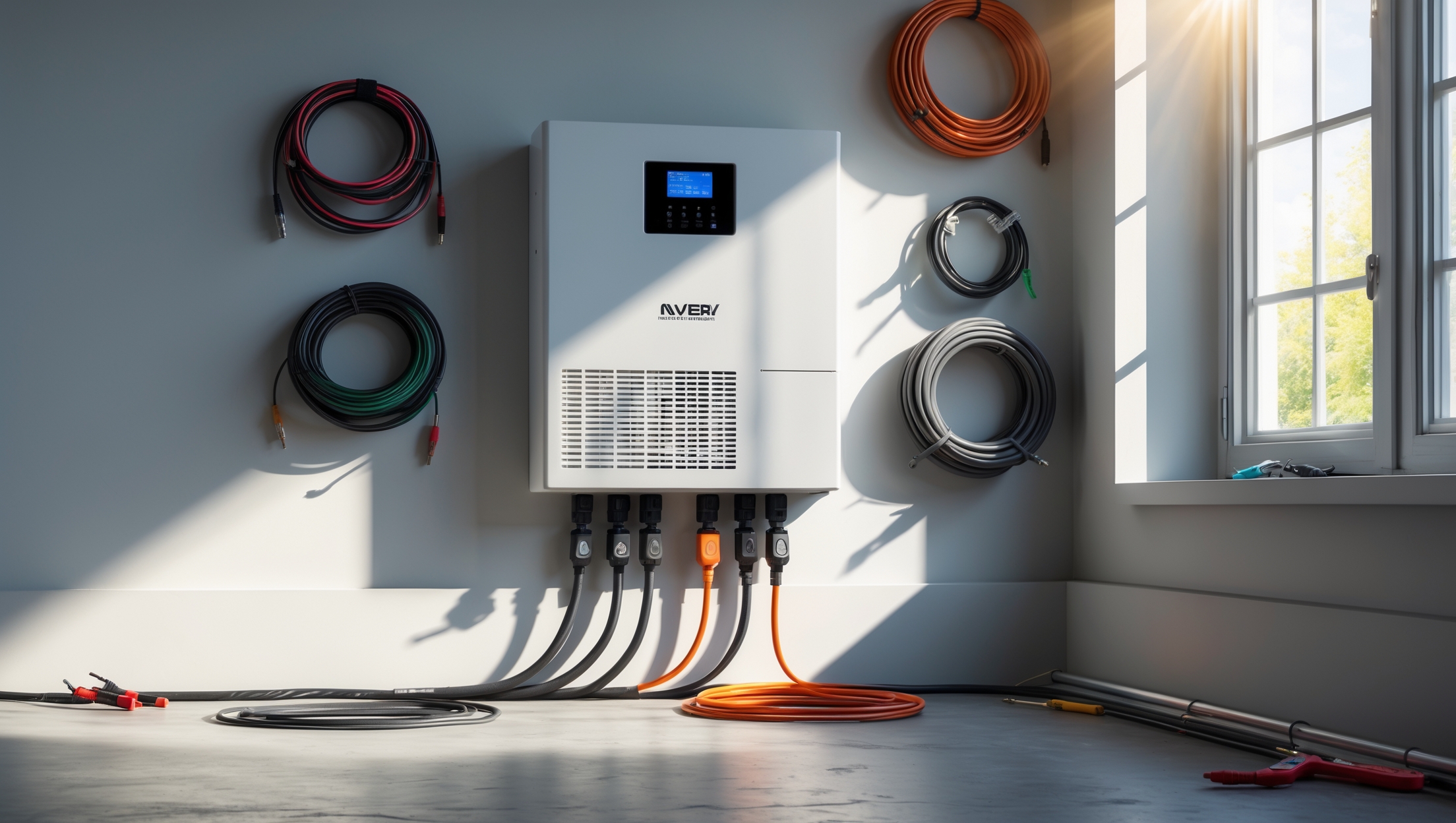Introduction: Understanding Insurance for Home Hydrogen Fuel Cell Backup Systems
Hydrogen fuel cell backup systems are rapidly becoming a cornerstone of sustainable home energy solutions, offering reliable, low-emission power during outages. As more homeowners seek resilient alternatives to traditional generators or battery backups, hydrogen fuel cells stand out for their efficiency, quiet operation, and minimal environmental impact. However, like any innovative home energy technology, integrating a hydrogen fuel cell backup system involves more than technical know-how and installation costs—it requires a careful review of insurance implications and long-term risk management.
Insurance for residential hydrogen fuel cell systems is a new frontier, blending conventional property coverage concepts with the unique risks posed by hydrogen storage, advanced electrical equipment, and system integration. Many standard homeowner policies do not automatically account for these systems, potentially leaving gaps in protection against damage, liability, or loss. Understanding what your policy covers, what additional endorsements or riders may be needed, and how to proactively communicate with your insurer can save you from costly surprises down the road.
This in-depth guide covers everything you need to know about insuring a home hydrogen fuel cell backup system before you install. From identifying specific risks and compliance requirements to negotiating with insurers and maintaining ongoing coverage, we’ll help you safeguard your sustainable energy investment with confidence.
Hydrogen Fuel Cell Backup Systems: Features and Risks
How Home Hydrogen Fuel Cell Systems Work
Hydrogen fuel cell backup systems generate electricity through an electrochemical process that combines hydrogen gas and oxygen, producing electricity, water vapor, and minimal heat as byproducts. These systems typically include hydrogen storage tanks, a fuel cell stack, power conversion electronics, and integration with your home’s electrical panel. During outages or peak demand, the system provides clean, on-demand energy to keep critical appliances and systems running.
Key Risks to Consider
- Hydrogen Storage: Hydrogen is highly flammable. Storage tanks must meet strict safety standards. Accidental leaks or improper handling can lead to fire or explosion risks.
- System Integration: Improper electrical integration can cause power surges, equipment damage, or fire hazards.
- Weather and Environmental Risks: Outdoor units may be vulnerable to flooding, wind, or extreme temperatures.
- Theft and Vandalism: The cost and novelty of these systems may make them targets for theft or intentional damage.
Compliance and Permitting
Most localities require permits for installation, and some may mandate periodic inspections. Non-compliance can invalidate insurance coverage and expose you to legal liability. Ensure your system is installed by certified professionals and meets all local, state, and national codes.
Homeowners Insurance: What’s Typically Covered?
Standard Homeowners Policies
Most standard homeowners policies (HO-3 forms) cover damage to the home’s structure and certain personal property from specified perils (fire, wind, theft, etc.). However, they may exclude or limit coverage for certain types of equipment, especially those classified as ‘hazardous’ or ‘experimental’.
Potential Gaps in Coverage
- Equipment Exclusions: Hydrogen fuel cell systems may be excluded as ‘unusual’ or ‘non-standard’ home equipment.
- Liability Limitations: Standard liability protection may not extend to damages or injuries linked to the system.
- Outbuildings or Detached Units: If your system is installed in a detached structure, separate coverage may be required.
- Flood and Earthquake: Most policies do not cover these perils without additional riders.
Questions to Ask Your Insurer
- Is my hydrogen fuel cell backup system covered under my current policy?
- Are there coverage limits for alternative energy equipment?
- Will installation affect my premiums?
- What documentation is required to maintain coverage?
Specialized Insurance Considerations for Hydrogen Fuel Cells
Equipment Endorsements and Riders
Some insurers offer endorsements or riders that extend coverage to alternative energy systems, including solar, wind, and—increasingly—hydrogen fuel cells. These may cover:
- Replacement or repair costs for fuel cell components
- Hydrogen storage tanks and related infrastructure
- Professional installation errors
- Loss of use if the system is damaged and your home becomes uninhabitable
Liability Coverage
Given the high energy density and flammability of hydrogen, enhanced liability coverage is crucial. This protects you if your system causes property damage or bodily injury to others, such as neighbors or utility workers. Consider increasing your liability limits or purchasing umbrella insurance for extra protection.
Business Use and Home Office Scenarios
If your home serves as a business, or if you generate and sell excess power, you may need commercial insurance coverage in addition to standard homeowners policies. Always disclose the system’s intended use to your insurer.
Steps to Obtain the Right Insurance Coverage
1. Research and Select Certified Installers
Choose an installer with recognized credentials (such as certification from the Hydrogen and Fuel Cell Technical Advisory Committee or similar bodies). Insurers may deny coverage if systems are not professionally installed and inspected.
2. Gather Documentation
Prepare the following for your insurer:
- Proof of purchase and installation
- Manufacturer’s specifications and safety certifications
- Installation and inspection permits
- Maintenance logs (if already in use)
- Emergency response plans
3. Request a Policy Review
Contact your insurance agent for a policy review before installation. Discuss the specific make, model, and capacity of your hydrogen fuel cell backup system. Ask them to flag any exclusions or recommend additional coverage options.
4. Compare Coverage Options
Shop around for quotes from multiple insurers, especially those with experience in alternative energy systems. Evaluate:
- Coverage limits for equipment, liability, and loss of use
- Deductibles and premium increases
- Endorsements for specific perils (flood, earthquake, vandalism)
- Exclusions, such as acts of terrorism or improper maintenance
5. Update Your Policy After Installation
Once your system is installed and inspected, provide your insurer with updated documentation. Request a written endorsement or policy amendment that explicitly lists your hydrogen fuel cell backup system as covered property.
Ongoing Risk Management and Maintenance
Regular Maintenance and Inspections
Insurers often require proof of ongoing maintenance to keep coverage valid. Schedule annual inspections by certified technicians. Maintain clear records of all service and repairs, and promptly address any identified issues.
Safety and Emergency Preparedness
- Install leak detection sensors and automatic shut-off valves
- Ensure proper ventilation around hydrogen storage tanks
- Keep a fire extinguisher rated for chemical fires nearby
- Train household members on emergency shutdown procedures
- Display emergency contact information prominently
Communicate Upgrades and Changes
If you upgrade your system, relocate it, or add additional energy storage or generation units, notify your insurer immediately. Unreported changes can void coverage in the event of a claim.
Cost Considerations: Insurance Premiums and Deductibles
How Hydrogen Fuel Cell Systems Affect Premiums
Premium changes depend on several factors:
- System value and replacement cost
- Risk profile (e.g., proximity to residential areas, history of natural disasters)
- Mitigation measures (e.g., safety devices, professional installation)
- Insurer experience with alternative energy technologies
On average, adding a hydrogen fuel cell backup system may increase annual premiums by 2%–7%, depending on location and insurer policies. However, some insurers offer discounts for green home features—ask about available incentives.
Deductibles and Claims Process
Understand your deductible amounts for alternative energy equipment. In the event of a claim, be prepared to provide detailed documentation of damages, maintenance records, and proof of compliance with all policy requirements.
Frequently Overlooked Compliance Issues
Zoning and Local Ordinances
Some municipalities restrict hydrogen storage or require additional setbacks from property lines. Failing to comply may result in denied claims or forced removal of your system.
Utility Interconnection Agreements
If your backup system connects to the grid, you may need a utility interconnection agreement, which often requires proof of insurance and compliance with safety standards.
Homeowners Association (HOA) Rules
HOAs may have rules about exterior modifications or the presence of tanks and equipment. Secure written approval before installation.
Expert Tips for Streamlining the Insurance Process
- Work with an Energy-Savvy Insurance Agent: Seek agents familiar with residential green technologies.
- Bundle Coverage: Consider bundling your home, auto, and green equipment for possible discounts and streamlined claims.
- Photographic Documentation: Take comprehensive photos of installation, storage tanks, and safety features for your records.
- Review Annually: Reassess your coverage needs as technologies evolve or your system ages.
Conclusion: Safeguarding Your Sustainable Energy Investment
Insurance may not be the most exciting aspect of installing a home hydrogen fuel cell backup system, but it is one of the most critical. Protecting your investment goes beyond simply having a policy in place. It requires proactive engagement with your insurer, a thorough understanding of coverage options, and an ongoing commitment to safety and compliance. As hydrogen fuel cell technology becomes more accessible, insurers are gradually updating their products to reflect these innovations—but gaps and ambiguities remain, especially for early adopters. By following the steps outlined in this guide, you can navigate the complexities of insurance coverage, avoid the pitfalls of underinsurance, and ensure that your sustainable energy system is protected against both routine and extraordinary risks.
Remember, the key to success is early and open communication: with your installer, your local authorities, and most importantly, your insurance provider. Take the time to document every step, invest in safety features, and keep your policy updated as your system evolves. In doing so, you not only safeguard your home and family, but also contribute to the responsible adoption of green technologies that will shape the future of energy. With the right insurance coverage in place, your home hydrogen fuel cell backup system can provide peace of mind, resilience, and sustainability for years to come.





You mention that standard homeowner policies might not automatically cover hydrogen fuel cell systems. In practical terms, what specific endorsements or riders should I be asking my insurance agent for when installing one of these at home?
When installing a home hydrogen fuel cell system, ask your insurance agent about an equipment breakdown endorsement and a renewable energy system rider. These additions can help cover damage to the fuel cell and related components. Also, check if you need increased liability coverage, since the system involves pressurized hydrogen. Be sure to provide your agent with detailed specs so your policy accurately reflects your setup.
For someone considering installing a hydrogen fuel cell backup in an older home, are there additional compliance or inspection requirements that might affect both installation and insurance eligibility?
Yes, older homes often face extra compliance and inspection steps when installing hydrogen fuel cell backups. You may need to upgrade electrical systems, ventilation, or even structural elements to meet current safety codes. Insurers usually require proof that your installation meets local building and fire codes, plus regular inspections by certified professionals. It’s best to consult your local permitting office and your insurance provider early in the process to identify any additional requirements specific to older properties.
Could you elaborate on the potential out-of-pocket costs if there’s a claim related to the hydrogen system and my current policy doesn’t fully cover it? I’m trying to plan my budget before installing anything.
If your current policy doesn’t fully cover claims related to a hydrogen fuel cell system, you could be responsible for any costs exceeding your policy’s limits or for types of damage your policy excludes. This might include the full replacement or repair costs for the system, property repairs, and any liability claims resulting from accidents or malfunctions. Reviewing your policy with your insurer is essential to estimate these potential out-of-pocket expenses accurately.
If the hydrogen storage tank or fuel cell stack were to malfunction and cause damage, does the article suggest whether standard property coverage or a special policy rider would be more likely to cover the repair and cleanup costs?
The article explains that standard property insurance may not automatically cover damages from a malfunctioning hydrogen storage tank or fuel cell stack. It suggests that homeowners usually need to add a special policy rider or endorsement to ensure coverage for repair and cleanup costs related to hydrogen system accidents. It’s important to discuss these details with your insurer before installation so you’re fully protected.
I’m curious how insurance requirements for hydrogen storage tanks in residential settings compare to those for traditional backup generators. Are there unique inspection or compliance standards insurers typically look for with fuel cells?
Insurance requirements for hydrogen storage tanks are generally more rigorous than for traditional backup generators. Insurers often require adherence to specific fire safety codes, proper tank ventilation, and certified installation by qualified professionals. Inspections might focus on leak detection systems, tank location, and emergency shutoffs, which aren’t usually as stringent for fossil fuel generators. Compliance with local regulations and regular maintenance documentation can also be key for fuel cell systems.